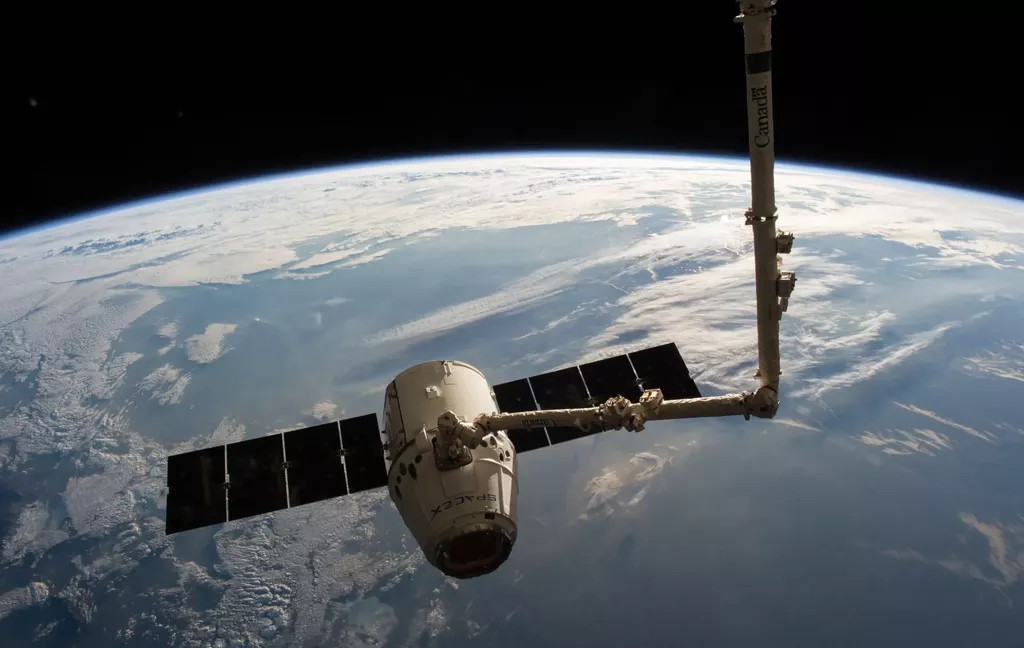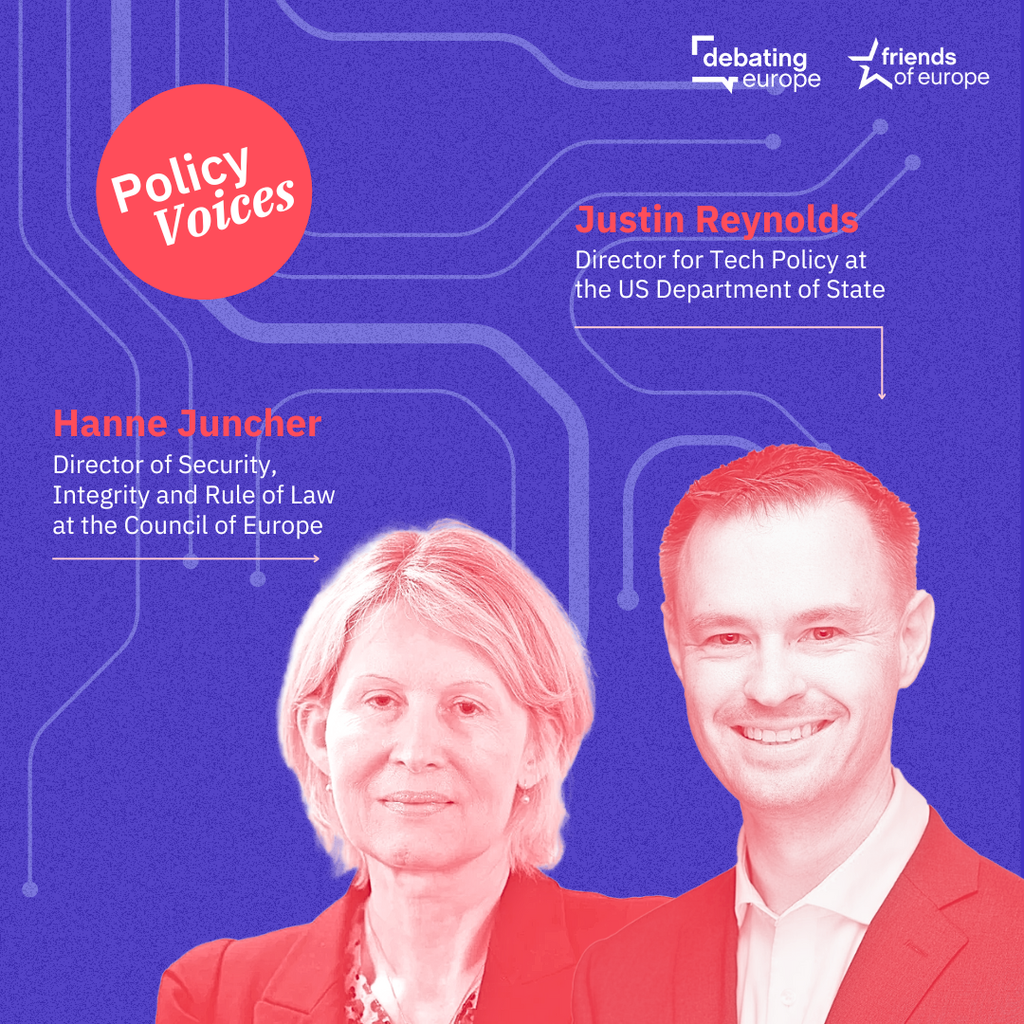A European agenda for space: resilience, security and sovereignty
Past event In person

- Area of Expertise
- Digital & Data Governance
Digital & Data Governance

Programme Officer at Friends of Europe
After the first ‘space race’ between the United States and the Soviet Union ended with the 1969 moon landing, the enthusiasm for space affairs dwindled. However, the 21st century has seen a rapid rekindling of interest in space. Why is that? This article explores the complexities of the new space race, the immense opportunities it presents, and the seemingly inevitable militarisation of the arena.
A growing number of private companies, such as SpaceX, Blue Origin and Virgin Galactic, have become major players in an industry traditionally exclusive to a few government-run space agencies. Absent from the first space race, China’s space programme has now made rapid progress as well. The country has successfully sent astronauts to space, landed rovers on the Moon and Mars, and launched a modular space station called the Tiangong. Nowadays, space-faring actors are competing not only for prestige but more importantly for strategic advantages, economic benefits and potential resources.
While the first space race was mostly about prestige and scientific achievement, today’s stakes involve concrete technological and economic prospects
One of the most prominent manifestations of this new race is the quest for Mars colonisation. SpaceX, led by multi-billionaire Elon Musk, has outlined ambitious – if not delusional – plans to establish a human colony on the planet. Though scientifically unrealistic and ethically questionable, Musk’s project has led to essential conversations on governance in space, resource extraction rights and potential conflicts between nations and private companies. The United Nations Outer Space Treaty of 1967, which prohibits any nation from claiming sovereignty over celestial bodies, will play a pivotal role in shaping the rules and norms of space politics in the decades to come.
Another glaring example is the renewed interest in lunar exploration. NASA’s Artemis programme aims to return astronauts to the Moon by 2024, with the goal of establishing a sustainable lunar presence. Simultaneously, China has been making significant strides with its Chang’e missions, having successfully landed a rover on the Moon’s far side. A few months ago, this feat was also accomplished by India. Such endeavours have sparked discussions about the strategic importance of lunar resources, such as water ice, which can be converted into hydrogen and oxygen for rocket fuel and life support. While the first space race was mostly about prestige and scientific achievement, today’s stakes involve concrete technological and economic prospects.
The lack of clear international regulations governing lunar resource utilisation has created a vacuum that nations and private entities are eager to fill. The Outer Space Treaty of 1967 prohibits the appropriation of celestial bodies, including the Moon, but it does not explicitly address resource ownership. The ambiguity surrounding lunar resource rights has led to various interpretations and actions. While some countries advocate for a cooperative approach to lunar exploration, others, particularly the US, have passed legislation asserting that their private companies can mine and own lunar resources. This has led to concerns about potential conflicts and disputes over lunar assets, with the potential for geopolitical tensions to escalate further.
The militarisation of space is another critical aspect of contemporary space politics. This is partly explained by the aforementioned economic opportunities that space presents, which drives self-interested actors to strengthen their grip. Space has rapidly evolved into a domain where nations’ military capabilities, including surveillance, communication and navigation, are deeply intertwined. The strategic importance of space assets, such as satellites, has made them vulnerable targets in times of conflict.
The conduct of anti-satellite tests by various nations has raised concerns about the weaponisation of space. In 2007, China successfully destroyed one of its own defunct satellites, creating a significant amount of space debris flying around the Earth. The US and Russia have also conducted anti-satellite tests in the past, further fuelling concerns about the destabilising effects of such actions.
The EU and ESA can play a pivotal role in fostering cooperation, transparency and responsible space practices on a global scale
European nations have increasingly become involved in the militarisation of space, deploying advanced satellite systems for reconnaissance, surveillance, and communication purposes. France, a prominent space power within the European Union, operates a robust military satellite programme, including reconnaissance satellites that provide critical intelligence-gathering capabilities. Germany also contributes to space militarisation through its deployment of radar reconnaissance satellites, such as the SAR-Lupe system, which enhances situational awareness and security. Dutch scholar Frank Slijper has coined the expression ‘Defensive Militarisation’ to describe the military aspects of EU space policy, highlighting the discrepancy between Europe’s words and its actions.
Thankfully, international efforts are underway to prevent the weaponisation of space. Initiatives and treaties have been proposed – and some ratified – to limit such weaponisation. But as often in global politics, mistrust is the norm. China and Russia proposed a draft treaty in 2008 to prevent the placement of weapons in space, which the US quickly dismissed as “a diplomatic ploy by the two nations to gain a military advantage.” Managing the militarisation of space is a pressing challenge, as the consequences of conflict in the Earth’s orbit could have far-reaching implications for global security.
Addressing these tensions requires international cooperation, transparency and the development of norms and agreements that govern behaviour in space. Concretely, the EU, along with member states and the European Space Agency (ESA), can advocate for international agreements regulating space behaviour. By sharing expertise, contributing to norm-building efforts, and engaging in capacity-building initiatives, the EU and ESA can play a pivotal role in fostering cooperation, transparency and responsible space practices on a global scale. Fostering dialogue, establishing clear regulations and promoting trust-building measures will be essential in preventing the escalation of tensions in space. The future of space exploration and the preservation of space as a global commons depend on our ability to navigate these challenges wisely and collaboratively.
The views expressed in this #CriticalThinking article reflect those of the author(s) and not of Friends of Europe.
Past event In person

Next event In person & livestreamed

Past event Online

Past event In person





Stay informed
We use cookies and similar technologies to adjust your preferences, analyze traffic and measure the effectiveness of our campaigns. Learn more about our privacy policy.